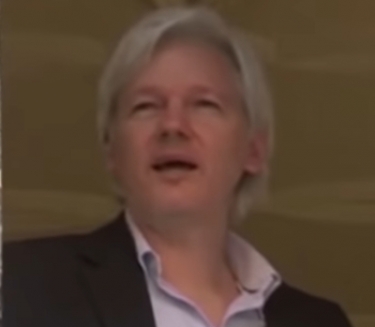A court spokesman said on Monday his application did not raise "an arguable point of law".
One remaining avenue for Assange to avoid what could be a 175-year sentence in the US is for UK Home Secretary Priti Patel to deny the extradition request made by the US. Prior to that, the case will go back to the judge who made the decision to deny the US request for extradition; however the only thing this court can do is to refer the decision to Patel.
In January, the High Court had turned down a request from Assange's lawyers to appeal directly to the Supreme Court, leaving it to the higher court to decide on whether it would hear a challenge.
|
|
BREAKING: UK Supreme Court refuses permission to appeal in Assange extradition. The case now moves to @UKHomeSecretary Priti Patel to authorize the extradition https://t.co/Falow48IyP pic.twitter.com/nLdUMkbh5m
— WikiLeaks (@wikileaks) March 14, 2022
British District Judge Vanessa Baraister had ruled in January that Assange should not be extradited, saying the risk he would commit suicide in a US jail was too high.
Assange faces criminal charges in the US for publishing classified information that was leaked to WikiLeaks by an American soldier, then known as Bradley Manning, but now, after gender reassignment surgery, known as Chelsea Manning.
This is not the end of the road for #Assange’s appeal against extradition
— Stefan Simanowitz (@StefSimanowitz) March 14, 2022
Instead it is just the latest twist in this torturous travesty of justice
What does today’s Supreme Court decision mean for #JulianAssange@amnesty’s legal expert explains #Assange #FreeAssange pic.twitter.com/w6lKCM9r2S
The Australian was arrested on 11 April 2019 and removed from the Ecuador embassy where he had taken refuge for seven years. His asylum was withdrawn shortly before he was arrested and he appeared in court shortly thereafter. The US made a formal request for his extradition on 6 June 2019.
Assange, 50, one of the better-known hackers Australia has produced, is being held at Belmarsh Prison in the UK.
The UK Government has not always been receptive to US requests for extradition. In 2018, the US gave up appealing a decision by a court in the UK to oppose the extradition of British security researcher Lauri Love to face charges of allegedly breaching the computer networks of a number of American Government agencies.
And another British hacker, Gary McKinnon, was not extradited for accessing US Government computers in 2012, after a 10-year legal battle, because he was considered to be “seriously ill”.
Former British prime minister Theresa May, who was home secretary at the time, made the decision not to extradite McKinnon.











































